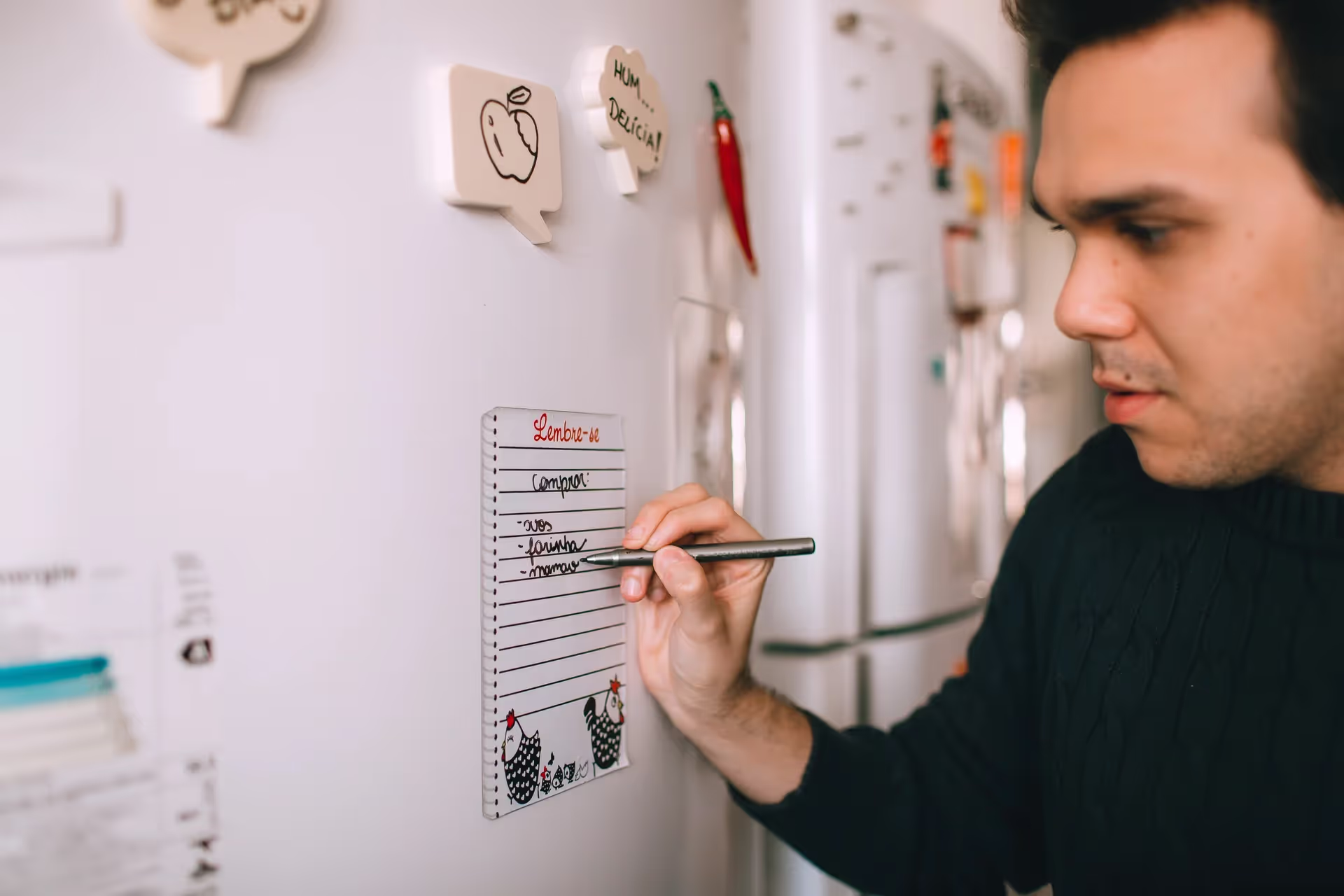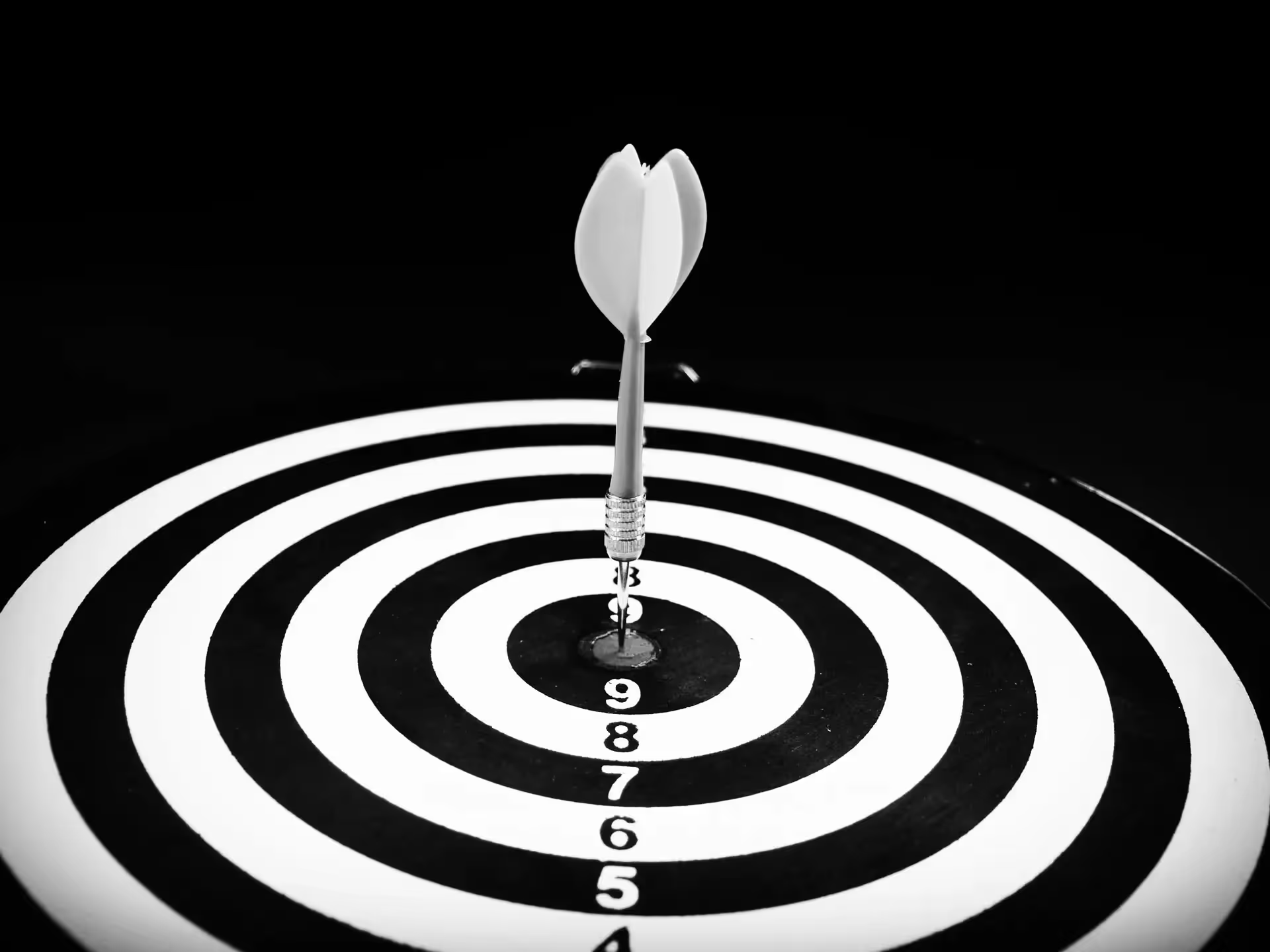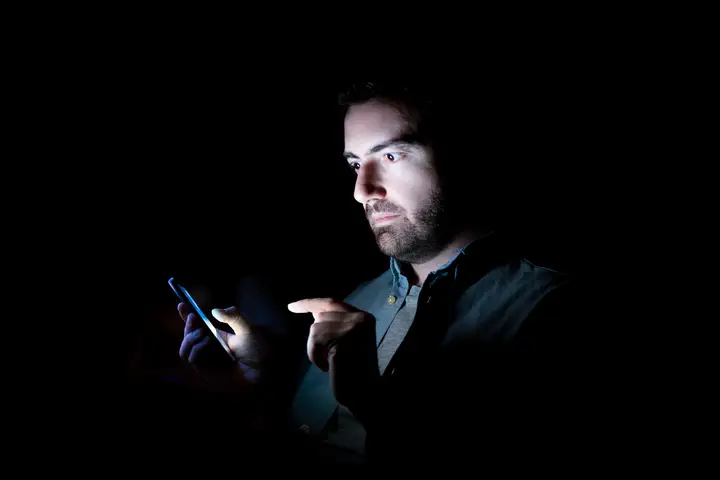While research on ADHD has grown significantly, understanding its impact on intimate relationships remains an area of ongoing exploration. For individuals with ADHD, challenges like inattention and impulsivity can unintentionally strain relationships. Partners may feel unheard or dismissed, leading to frustration and misunderstandings. It's important to remember that ADHD manifests differently in everyone, and there is no one-size-fits-all approach.
Recent findings suggests that ADHD symptoms in women can worsen significantly before and during menstruation due to fluctuating hormone levels, particularly oestradiol, highlighting the need for personalised treatment approaches.
Find out if ADHD affects your relationship
You might be wondering why responsibilities within your relationship feel unevenly distributed. Partners of individuals with ADHD often find themselves taking on a disproportionate share of tasks that require careful planning and organisation, such as administrative duties.
Furthermore, challenges related to inattention and hyperactivity can manifest in various ways, including broken promises or impulsive financial decisions. These difficulties can impact both partners, potentially leading to feelings of frustration and dissatisfaction within the relationship. Individuals with ADHD may also experience a persistent restlessness and a constant desire for change.

7 Examples of Common Challenges in ADHD Relationships
In long-term relationships, partners often complement each other. For example, if one partner with ADHD struggles with administrative tasks or maintaining a tidy home, they might delegate these responsibilities to their partner or hire help. In return, the partner may offer support in areas where the person with ADHD may be less organized or efficient.
While some couples with one partner having undiagnosed ADHD can enjoy long-lasting and happy relationships, challenges may arise, particularly after the initial honeymoon phase. These challenges can include:
Communication problems
Difficulty communicating thoughts and feelings clearly, hyper focusing on specific topics, and interrupting conversations can lead to misunderstandings and frustration. Partners may feel unheard or unable to fully express themselves. While individuals with ADHD often excel at problem-solving in the moment, they may struggle with long-term planning and follow-through. The other partner may feel unheard or that their feelings are dismissed, which can strain the relationship. This can be particularly challenging if the partner with ADHD remains undiagnosed.
Time Management
Time management challenges can manifest in various ways within a relationship. People with ADHD may struggle with punctuality, planning, and prioritising tasks. They might become overly focused on specific tasks, leading to delays in others, or become overwhelmed by complex projects. For example, a simple task like painting a wall might take months or even years to complete if the person with ADHD isn't particularly interested in the activity. Some may develop perfectionist tendencies or rigid routines as coping mechanisms, making it difficult to adapt to changes in plans.
Impulsive buying
Financial management can be a significant challenge for individuals with ADHD. Impulsive spending and a tendency to collect items without using them can lead to financial strain and conflict within relationships. This can be exacerbated by easy access to online shopping and fast delivery services. It's important to develop strategies to manage impulsive spending, such as creating a budget, avoiding impulse purchases, and setting financial goals.
Open communication with a partner about financial concerns can also help to prevent misunderstandings and maintain a healthy relationship.
Infidelity
Infidelity can occur in any relationship, but ADHD can exacerbate certain relationship challenges. Impulsivity, emotional dysregulation, and difficulty with attention can contribute to impulsive decisions, arguments, and misunderstandings, which may increase the risk of infidelity. The available research in this area is limited, however some research studies suggest there may be a link. ADHD can increase the risk of risky sexual behaviours. Early diagnosis and intervention, along with accessible healthcare and education, can mitigate these risks. Addressing impulse control and executive function challenges is crucial. Seeking timely professional help can significantly improve relationships.
Emotional Volatility
People with ADHD often thrive on problem-solving and quick decision-making. However, their impulsive nature and emotional volatility can sometimes lead to conflicts and strained relationships. While this approach might feel natural to them, it's important to recognise how it can impact others. To navigate these challenges, both the individual with ADHD and their partner can benefit from seeking professional support.
Forgetfulness and Inattention
Forgetting important dates, anniversaries, or simply neglecting tasks can strain relationships. People with ADHD may struggle with these challenges due to inattention. This can lead to misunderstandings, as it may seem like a lack of care or consideration. However, it's important to remember that this is often a symptom of ADHD, not a deliberate act of disregard.
With professional support, individuals with ADHD can develop strategies to improve their memory and organisational skills, fostering stronger relationships.
Rejection Sensitivity
People with ADHD can be highly sensitive to criticism, leading to defensive responses and withdrawal. This can create tension in relationships, as partners may feel like they're constantly walking on eggshells.
Rejection Sensitivity Dysphoria (RSD) is a relatively new concept in ADHD research. It suggests that individuals with ADHD may develop heightened sensitivity to rejection and criticism due to past experiences of social exclusion and possible past academic challenges.

ADHD, alcohol, and drug use. Is there a link?
Few people are aware that those suffering from ADHD are at a higher risk of alcohol and drug misuse. These addiction behaviours can be interpreted as ‘self-medicating’ untreated symptoms of ADHD. This behaviour, however, only becomes the rocket fuel in igniting the next argument or break-up. In some cases, the addiction itself can be secondary to undiagnosed ADHD and can improve or even resolve after receiving support for ADHD.

Why do people with ADHD forget important dates?
People suffering from ADHD struggle with time management. They may always be running late for important events or not turn up at all. Sometimes, they may even forget social events or anniversaries unintentionally, making their partner feel empty and disappointed. They may also find a new, exciting activity and simply hyperfocus on it, ignoring everything else. Sometimes they can even ignore their own basic personal needs.

Can ADHD cause divorce?
Like many other mental health conditions, ADHD can cause stress in the family life. Living with ADHD symptoms, especially if the condition is undiagnosed, can undoubtedly add to marital problems. There are also limited studies, suggesting that parents of children suffering with ADHD, can be at twice the risk of divorce. At the same time, some experts caution that it may not be fully accurate to argue that ADHD causes divorce. Some couples even believe that ADHD's more adventurous traits may be beneficial to their union. Although the quantity of available data is not great, seeking help for ADHD may improve relationships in the long-term, similar with any mental health conditions when are well managed.

Can I have ADHD and a successful relationship?
Many people who date someone with ADHD say that their partner is spontaneous, enjoyable, creative, and fun. There can be advantages, particularly, when the couple are able to complement each other. For example, the partner or spouse who does not have ADHD completes the admin work and plans activities whilst the person suffering from ADHD, may have a successful career involving creativity, and risk-taking or they may be good at resolving problems on the spot. With the appropriate support for ADHD, relationships may become more sustainable.

What if ADHD is undiagnosed?
A partner with undiagnosed ADHD and is, therefore, not receiving treatment, makes the scenario worse. Even therapy might not be sufficient to reduce bitterness and hostility. A break-up can be more likely, the longer that the troubles are allowed to go on in a relationship. In unfortunate situations, the person suffering from ADHD may cause irreparable damage or become involved with the authorities. More recently, a link has been established between long-term physical health implications in people suffering with ADHD.

Any tips on managing finances in a relationship?
Arguments over finances are very comm in relationships. Impulsive behaviours and overspending can often result in conflict. People suffering from ADHD may end up spending more, investing significant sums of money in new hobbies, constantly make payments late, or paying the so-called, “ADHD tax”. This topic needs further explanation because it is not a straight-forward element of the condition. I would recommend reading my blog ADHD and Finances: A Difficult Relationship.

How can I help my ADHD partner?
It is necessary for people with ADHD to understand how their condition affects others and to learn how to develop sustainable relationships. However, it is equally crucial for their loved ones to be aware of the difficulties associated with ADHD and offer both support and compassion. Simply encouraging your loved one to seek help, can make a significant difference in your relationship. Continue reading the article to find out some tips.
.avif)
Navigating Relationships with ADHD: Strategies for Success
Living with ADHD can present unique challenges in romantic relationships. Impulsivity, forgetfulness, and difficulty with emotional regulation can strain communication, shared responsibilities, and emotional connection. However, with understanding, open communication, and the right strategies, couples can build strong and fulfilling relationships.
Key Strategies for Success:
- Seek Professional Support: If you suspect that ADHD is impacting your relationship, consider seeking professional help. Working with a specialist in ADHD can provide valuable insights and tools for couples and individuals.
- Prioritise Open Communication: Engage in open and honest conversations about your feelings, concerns, and challenges. Active listening, empathy, and validation are crucial.
- Focus on Strengths: Celebrate each other's strengths and how they complement one another. By adopting this strategy synergies can be created in your relationship.
- Embrace Differences: Recognise that everyone is unique. Strive for understanding and acceptance rather than perfection. From perfection there is only one way around, which is called failure.
- Practice Patience and Empathy: Change takes time. Be patient with yourself and your partner as you navigate these challenges. Mental health is not a sprint.
- Avoid the Drama Triangle: Work to avoid falling into unhealthy communication patterns, such as victim, rescuer, and persecutor roles. Long term this can damage relationships beyond repair.
How to Set Up Your Relationship for Success:
For Individuals with ADHD:
- Prioritise Self-Care:
- Diet and Nutrition: Maintain a healthy diet to support brain function.
- Exercise Regularly: Exercise improves focus, concentration, and overall well-being.
- Medication Management: work with your healthcare professional, consult with your doctor regularly.
- Therapy or Coaching: Consider working with your psychiatrist, psychotherapist or coach. Develop personalised strategies.
For Partners of Individuals with ADHD:
- Be Patient and Understanding: Recognise that managing ADHD symptoms takes time and effort.
- Educate Yourself: Access trusted resources and learn how ADHD affects your partner.
- Seek Support: Don't hesitate to seek support from friends and family.
- Practice Self-Care: Prioritise your own mental and emotional well-being.
- Celebrate Progress: Acknowledge and celebrate victories and positive changes.

Building a Stronger Future Together:
ADHD presents unique challenges in relationships, but it can also be a source of growth and strength. With open communication, mutual understanding, and the right strategies, couples can build fulfilling and lasting connections.
Key Takeaways:
- ADHD significantly impacts relationship dynamics, but awareness is key.
- ADHD also brings unique strengths that can enrich relationships.
- Start well your journey and seek holistic professional services.
Every relationship is unique. By working together, seeking support when needed, and cultivating resilience, couples can successfully navigate the challenges of ADHD and build a strong, fulfilling relationship.

Frequently Asked Questions
Can a person with ADHD be in a relationship?
Absolutely! Many people with ADHD have happy, fulfilling relationships. While symptoms may create challenges, it's nothing some communication and practical problem solving can't fix.
How do ADHD people show love?
Like everyone else, people with ADHD show love in various ways. However, some may struggle with traditional expressions of affection, such as remembering special dates or being consistently attentive. Instead, they may show their love through spontaneous gestures or acts of service.
Is therapy helpful for couples dealing with ADHD?
Specialised therapy can be incredibly beneficial for individuals and couples who are managing ADHD in relationships. A specialist can provide practical strategies, help improve communication and understanding and support the relationship's growth.

Seeking professional support for ADHD and your relationship?
If you or your partner live in London or anywhere in the UK and are struggling with ADHD, you're not alone. Inattention, impulsivity, and hyperactivity can unintentionally create challenges in personal relationships.
Here at ADHD Specialists, we understand these struggles and are dedicated to helping you build stronger, healthier connections.
Book your private ADHD assessment with a qualified private psychiatrist
References and more resources
Private ADHD Assessments in London & UK | adhdspecialist.com
ADHD Symptoms Can Fluctuate with the Menstrual Cycle | Scientific American
Adult ADHD and romantic relationships: What we know and what we can do to help - PubMed
Let’s Talk about Sex… and ADHD: Findings from an Anonymous Online Survey
Rate and predictors of divorce among parents of youth with ADHD - PMC (nih.gov)
Adult ADHD and romantic relationships: What we know and what we can do to help - PubMed (nih.gov)
Disclaimer: The information is not intended nor implied to be a substitute for professional medical advice, diagnosis or treatment. All content, and information, contained in this article is for general information purposes only and does not replace a consultation with your own doctor/health professional. Information about mental health topics and treatments can change rapidly and we cannot guarantee the content's currentness. For the most up-to-date information, please consult your doctor or qualified healthcare professional. For more information, you can check the Royal College of Psychiatrists (rcpsych.ac.uk)
Pictures source Pexels.com Free Stock Photos, Royalty Free Stock Images & Copyright Free Pictures · Pexels
.svg)
.svg)





.svg)






